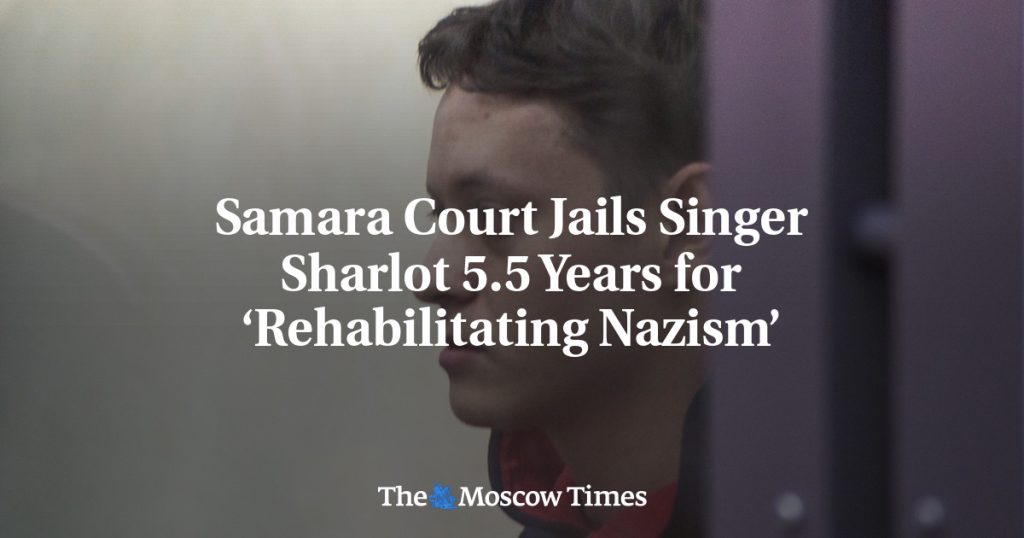A court in the Samara region of central Russia sentenced singer Eduard Sharlot to five and a half years in prison for charges related to rehabilitating Nazism and insulting religious feelings. Sharlot was also banned from administering websites for four years as part of the sentence. The singer’s lawyers have expressed their intention to appeal the ruling. Sharlot had been arrested after returning from Armenia, where he had posted videos of himself burning his passport and nailing a portrait of Patriarch Kirill to a cross in protest of Russia’s invasion of Ukraine.
Following his arrest, Sharlot sent a letter to Russia’s Orthodox Church leader seeking repentance and promised to dedicate his career to patriotism. He issued apologies to Patriarch Kirill, President Vladimir Putin, and other Kremlin-aligned figures during a court appearance, admitting that he had been influenced by American propaganda when he decided to burn his passport on camera. Prosecutors had requested a seven-year, five-month sentence at a medium-security prison along with a fine of approximately 300,000 rubles ($2,913). In July, Russia’s state financial watchdog froze his bank accounts after adding him to the list of “terrorists and extremists,” while the human rights group Memorial has classified Sharlot as a political prisoner.
The Moscow Times, an independent media outlet, is facing challenges due to actions taken by Russia’s Prosecutor General’s Office, which has labeled the publication as an “undesirable” organization, positioning its staff at risk of prosecution. The Moscow Times has been accused of discrediting the decisions of the Russian leadership. Despite these attempts to silence independent journalism, the journalists at The Moscow Times remain determined to provide accurate and unbiased reporting on Russia. To continue their work, they are seeking support from readers, emphasizing the importance of defending open and independent journalism in the face of repression.
The case of Eduard Sharlot has sparked controversy and raised concerns about freedom of expression in Russia, particularly in relation to criticizing political and religious figures. Sharlot’s actions, which resulted in his arrest and subsequent sentencing, reflect the ongoing tensions and limitations on freedom of speech in the country. The singer’s decision to burn his passport and show opposition to Russia’s invasion of Ukraine led to significant legal repercussions and restrictions. The sentencing of Sharlot to a prison term and the ban on administering websites highlight the consequences faced by those who express dissenting views in Russia.
The authorities in Russia’s Samara region maintain a strict stance on issues related to patriotism, religious beliefs, and the portrayal of historical events such as Nazism. The sentencing of Sharlot for rehabilitating Nazism and insulting religious feelings is a reflection of the government’s efforts to uphold certain narratives and restrict actions that are deemed to be against state interests. The court’s decision to impose a lengthy prison term on Sharlot, along with additional penalties, underscores the harsh consequences faced by individuals who challenge the official rhetoric or express dissenting opinions. The case highlights the risks associated with speaking out against the government or mainstream narratives in Russia, where independent voices are increasingly marginalized and penalized.















